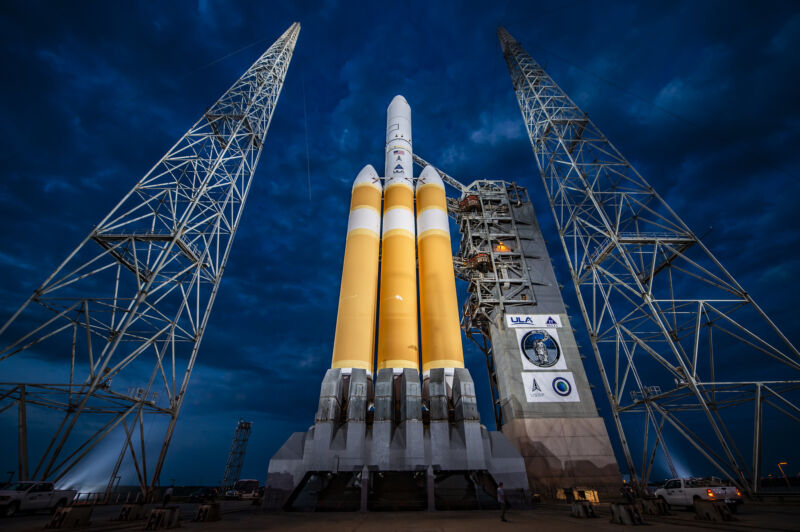United Launch Alliance
Welcome to Version 6.37 of the Rocket Report! The massive story this week is the ultimate launch of the Delta IV Heavy rocket, which is without doubt one of the largest spectacles to get pleasure from lifting away from the planet. Due to a scrub on Thursday, there’s nonetheless time to clear your calendar for a second try on Friday at 1:37 pm ET in Florida.
As all the time, we welcome reader submissions, and in the event you do not wish to miss a problem, please subscribe utilizing the field under (the shape is not going to seem on AMP-enabled variations of the location). Every report will embrace data on small-, medium-, and heavy-lift rockets in addition to a fast look forward on the subsequent three launches on the calendar.
Orbex patents reusable rocket tech. The British launch firm mentioned this week it has patented a “REFLIGHT” expertise that permits the restoration of the primary stage of its small Prime rocket. Primarily, Orbex designed an interstage that may operate considerably like grid fins on the Falcon 9 rocket’s first stage. “After Stage 1 detaches from Stage 2, the interstage on prime of Stage 1 reconfigures into 4 ‘petals’ which fold out and create drag forces that passively reorients and slows the spent rocket stage’s descent to Earth,” the corporate said.
Present me, do not inform me … This petal construction will mix with a parachute to allow a low-speed touchdown at sea, the place Orbex plans to get better its first stage. All of it sounds good, however this appears to be one thing of placing the cart earlier than the horse. Orbex is now practically 9 years previous, and it is not clear when the Prime rocket will take flight for the primary time. As with all small launch firms, the main focus ought to actually be attending to the primary flight, demonstrating a functionality, after which ramping up launch cadence. Speak of reuse and recycling is nice. However flying is healthier. (submitted by EllPeaTea)
Boeing sues Virgin Galactic. Boeing and its subsidiary, Aurora Flight Sciences Company, have sued Virgin Galactic, alleging the house tourism firm has misappropriated commerce secrets and techniques, The Register studies. In 2022, Virgin Galactic chosen Aurora to construct new motherships for its spacecraft as replacements for the VMS Eve provider plane. The lawsuit alleges that Virgin Galactic has didn’t pay it nearly $26 million for work on new craft.
Going ahead with only one plane … On the time of the settlement, Virgin Galactic mentioned it wanted new motherships to assist an elevated cadence of spaceflights. Virgin Galactic CEO Michael Colglazier mentioned, “Our next-generation motherships are integral to scaling our operations. They are going to be quicker to provide, simpler to take care of, and can permit us to fly considerably extra missions annually.” The primary supply was due in 2025. After it started work on the undertaking, Aurora concluded {that a} new mothership would price practically twice as a lot as Virgin Galactic hoped and wouldn’t be accomplished earlier than 2027. Now, Virgin Galactic plans to soldier on with simply Eve in the meanwhile. (submitted by EllPeaTea and Ken the Bin)
JAXA inks with Interstellar Applied sciences, others. Japan’s house company has chosen startup Interstellar Applied sciences as a precedence launch supplier as a part of a program to advance the commercialization of house, Area Information studies. Area One, whose Kairos strong rocket exploded seconds after liftoff earlier this month, was additionally chosen below the small satellite tv for pc initiative by JAXA, as have been Area BD and Mitsui Bussan Aerospace.
Broadening the home trade … The agreements imply the businesses could have precedence for future contracts. These are designed to assist private-sector entities able to launching satellites developed below JAXA’s small satellite tv for pc missions and advance the commercialization of house transportation companies. Japan is concentrating on a home launch capability of roughly 30 institutional rockets and personal rockets per yr by the early 2030s. (submitted by Ken the Bin)
